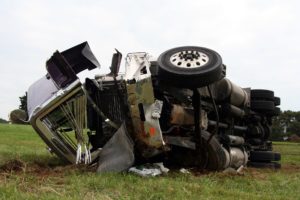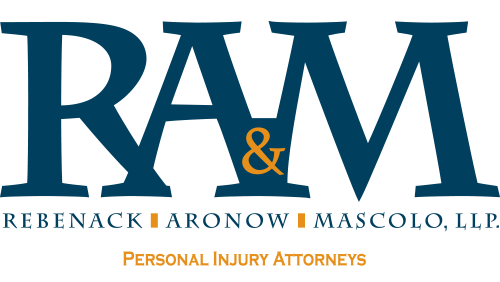The 6 Steps to Expect in Every Truck Accident Lawsuit
Each year, roughly 60,000 people are injured in truck accidents, which leads to many lawsuits being filed. Despite this huge number of truck accident lawsuits each year, many people are not aware of how these cases work. Learning more about the process can help you decide if you want to pursue a truck accident lawsuit during these unprecedented times.
The Plaintiff Is Injured and Considers a Truck Accident Lawsuit
The cause of every trucking law case is a person getting injured in a truck accident. Truckers work hard to provide essential services and ship products all over the nation. However, the sad reality is that all the extra work of carrying supplies during the COVID-19 pandemic may lead to more accidents. Mistakes can happen at any time, and they become even more likely when people are tired and overworked. There are all sorts of injuries you may sustain after a trucking accident, including broken bones, chronic pain, disfigurement and post-traumatic stress disorder.
The majority of people will consult with a lawyer at this point, which tends to greatly improve the outcome of their case. An attorney will go over the basics of the accident with the person and decide whether he or she is willing to take on the case. Whether a lawyer takes a case depends on his or her personal preferences. Usually, an attorney will only agree to initiate a formal lawsuit if he or she thinks that the plaintiff has a legitimate case and the plaintiff’s losses are more than the $3,000 limit of small claims court.
The Complaint Is Filed and the Defendant Is Served Within the Time Limit
The first official step in a trucking accident lawsuit is filing a formal complaint. This is a document that clearly lays out how the plaintiff was injured through the defendant’s negligent or harmful behavior. It is very important to file this document before the statute of limitations is up, or the case will probably be thrown out. For most personal injury cases in New Jersey, you will have two years from the time of the injury to file the suit. However, if a public entity of the state was involved in the trucking accident, you only have 90 days to file.
This is why it is important to speak to an attorney as soon as possible. You are also legally required to serve a summons to the defendant. This involves using a process server to notify the defendant that you are suing him or her. You only have 15 days to do this after the complaint is filed, or your case may be dismissed.
The Defendant Answers the Complaint
The next legal step is for the defendant to start preparing a response. If the trucker or their employer has liability insurance, they will need to notify their insurer of the lawsuit. Usually, the defendant will get their own lawyer, and then it is time for the individual to file a response with the court. This document will go through your complaint paragraph by paragraph with the defendant either admitting or denying the allegations you made. The defendant’s answer may also include various legal defenses for their behavior. It is at this time that the defendant has the option of submitting a counterclaim in which they try to seek damages against the plaintiff.
Both Parties Obtain Evidence
In a process referred to as discovery, both the plaintiff and defendant have time to prepare for negotiations and trials. This is one of the most important steps of a truck accident lawsuit. In fact, most of a lawyer’s billable hours may end up going toward this research and trial preparation. All of this research is typically focused on proving you were injured and the other party was responsible for your injury by behaving in a negligent way that caused the injury. Meanwhile, the defendant will be trying to find evidence that shows you are not really injured, they were not responsible for your injury or you were injured despite them behaving in a reasonably cautious way.

Both sides are allowed access to all relevant information, but it is not automatically handed over to them. Instead, they have to formally request information from the other party. The other party can then choose to try objecting to the request, or they can just provide the information. All involved individuals may have to submit to depositions where they answer questions under oath, creating a record for the court. You can also expect to have physical examinations, obtain reports from the officers at the scene of the accident, seek data from medical or driving experts and answer various questions the other party sends you.
Both Parties Attempt Pretrial Negotiations
Once information is gathered, both parties will try to find ways to resolve the situation without going to trial. They may file motions with the court asking for summary judgment or for the lawsuit to be thrown out. The lawyers may also try offering settlements or requesting a settlement from the other party. Settling is usually the preferable outcome since it resolves the situation quickly and quietly. If both parties want to come to a settlement but cannot quite agree, they may use a neutral third party, called a mediator or an arbitrator, to resolve the dispute. Only 5% of personal injury cases actually end up going to trial because the majority of them are settled at this stage.
The Trial Starts and a Judgment Is Reached in Your Truck Accident Lawsuit
If all the negotiations cannot lead to a settlement before the trial, both parties will go before a judge or jury to present their case. During the trial, lawyers will submit statements, interview witnesses, display evidence and present closing arguments. On average, a truck accident lawsuit timeline for the trial tends to be somewhere between one to seven days in length. The length of time is usually decided by the amount of evidence that has to be presented.
After hearing all the evidence, the judge or jury will then deliberate on the evidence they have heard. They can decide whether the plaintiff was wronged, and if so, they will determine how much money the defendant owes. In New Jersey, compensation in truck accident lawsuits may be both compensatory and punitive. Punitive damages are basically just a punishment or a fine the defendant has to pay for behaving negligently, ignoring workplace regulations or breaking traffic rules. Meanwhile, compensatory damages provide repayment for things like:
- Medical bills
- Property damage
- Loss of wages
- Loss of earning potential
- Emotional trauma
- Pain and suffering
As you can see, truck accident lawsuits tend to be complex legal matters with lots of steps. However, this does not mean you should expect the process to be confusing. Having a good attorney on your side can make your lawsuit feel simple and stress-free. RAM Law works hard to make sure our clients feel comfortable during their cases. Our trucking law attorneys can explain each step and guide you through the process. Get your free consultation by calling (732) 394-1549 or emailing us now. We have offices in New Brunswick, Somerville, and Freehold.


